The Future is the Fiber
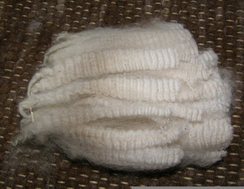
Raw Fiber
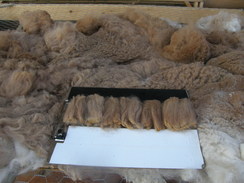
Sorting and Grading
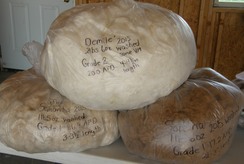
Ready to Process
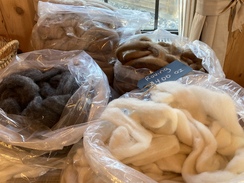
Beautiful Rovings
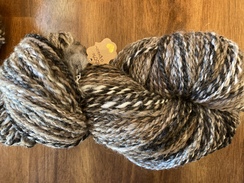
Hand Spun Yarn
The fiber is what it’s all about!
Natural Colors:
Alpacas naturally grow fiber in a wide variety of gorgeous colors.
Processing:
Alpaca is fantastic on it's own but can also be blended with many other natural and man-made fibers to make a wide variety of many beautiful products! It is suitable for knitting, crocheting, weaving and felting!!
Moisture Absorbant:
It has a natural regain of 15% of it’s own weight in moisture without feeling wet. (It wicks moisture)
Smooth Handle:
Alpaca fiber has smooth scales instead of hooks, as in sheep’s wool so does not have an "itchy" feel.
Non-Allergenic:
It lacks lanolin and having a relatively dry and smooth surface it does not harbor dust mites and other common allergens.
Versatile Weight:
Alpaca can be made into products for all seasons. When processed in a worsted method, a very fine yarn can be produced and used for lightweight summer garments. It is used quite often in Saudia Arabia.
Fire Retardant:
One of the least flammable, difficult to ignite natural fibers. It has a slow spreading flame, is easy to extinguish, beads like ash and doesn’t stick to the skin. Alpaca fiber passes FAA requirements.
Alpaca breeders and wearers find alpaca to be strong, warmer than wool, and having good memory.
Processors require uniformity and consistency in brightness, color, length, and grade(micron) to make beautiful, wearable, and durable products. Sorting and grading our yearly harvest is essential in sending the best raw product we can to processors. Knowing what grade produces what kind of product also helps the breeder determine where to send their harvest.
Horse Mountain Alpacas invites you to join us in this adventure!
|